AiPrise
10 min read
September 30, 2025
Phone Number Identity Verification: Is Your Business Protected?
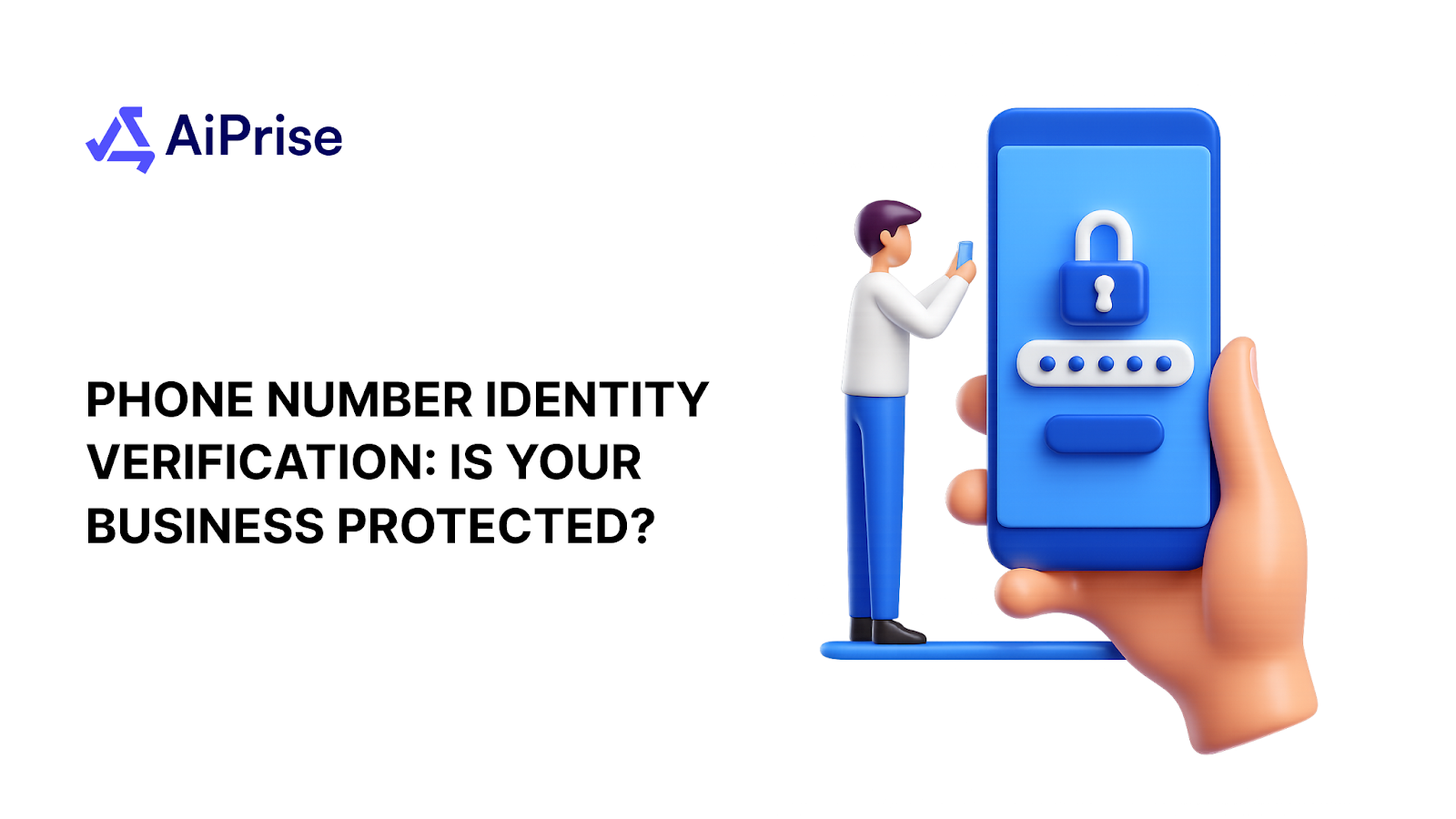
Key Takeaways










Think about how often your business relies on phone numbers to connect with customers, order confirmations, alerts, and support calls. But how confident are you that those numbers truly belong to the right people?
Phone number identity verification has become critical in protecting businesses against rising fraud and identity theft. In fact, verifying phone numbers reduces the risk of fraudulent accounts and unauthorized transactions, safeguarding your brand and customers alike.
Recent data from Juniper Research indicates that mobile identity verification solutions, including phone number verification, are expected to prevent over $12 billion in fraud losses globally by 2025.
With fraud growing increasingly complex, knowing how phone number verification works and its impact on securing customer identities is crucial for your business.
This blog explains why you should adopt phone number identity verification, explores its critical use cases, and highlights how it protects your operations and enhances customer trust.
Key Takeaways
- Phone number identity verification confirms both number validity and user ownership, providing a critical layer of security beyond simple validation.
- It reduces fraud, prevents fake accounts, and protects businesses from account takeovers and unauthorized transactions.
- Multi-layered verification methods like OTP, carrier checks, and AI-driven risk scoring balance security with a smooth user onboarding experience.
- Phone verification supports regulatory compliance (KYC, AML, GDPR) and enhances data quality, improving communication accuracy and customer trust.
- Choosing the right solution requires focus on global coverage, speed, multi-factor options, API flexibility, and compliance; these factors directly impact fraud reduction and operational efficiency.
What Is Phone Number Identity Verification?
Phone number identity verification is a security process used by businesses to confirm both the validity of a phone number and that the person providing it actually owns or controls it.
This goes beyond merely checking if a number is active; it verifies ownership, legitimacy, and reduces fraud risks.
Identity verification confirms who is behind the number, preventing criminals from exploiting phone numbers to bypass security protocols. It’s a critical step for any company focused on secure customer interactions, fraud prevention, and regulatory compliance.
Also Read: Common Types of Business and Financial Fraud
Now that you know what phone number identity verification is, it’s crucial to understand exactly why this process has become indispensable for businesses today.
Why Phone Number Identity Verification Matters for Businesses?
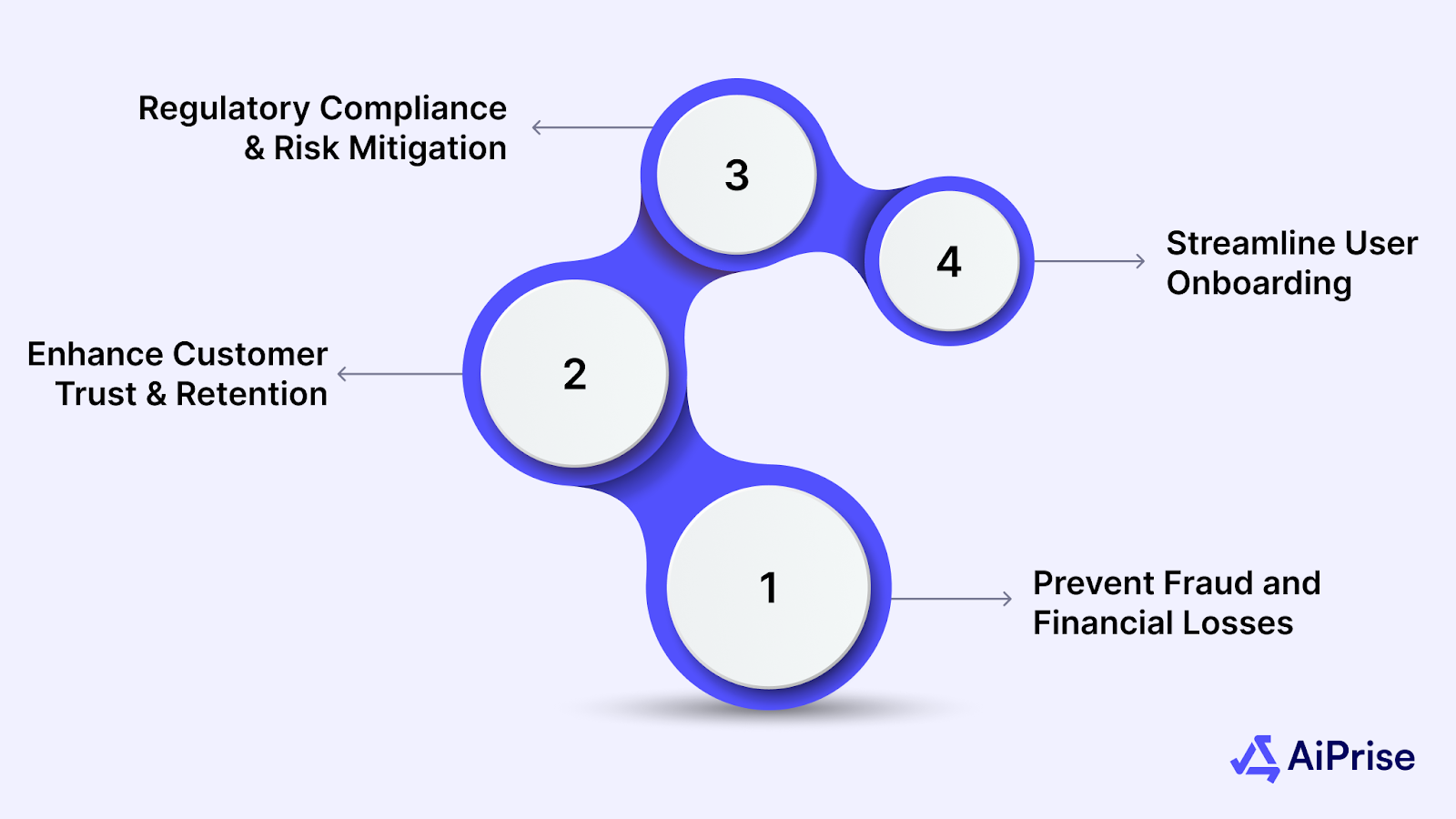
Phone number identity verification has shifted from a convenience feature to a critical security and business tool. It matters because it directly impacts your ability to protect revenue, maintain trust, and meet increasing regulatory demands.
Here’s why it’s essential:
Prevent Fraud and Financial Losses:
Fraudsters frequently exploit phone numbers for account takeovers, fake registrations, and unauthorized transactions. This dramatically lowers potential financial losses and chargebacks.
Enhance Customer Trust and Retention:
Verifying phone numbers ensures your communications reach genuine customers. This reduces bounce rates and improves engagement, reinforcing brand credibility and encouraging repeat business.
Regulatory Compliance and Risk Mitigation:
Regulations such as KYC (Know Your Customer), AML (Anti-Money Laundering), GDPR, and CCPA increasingly demand robust user identity verification. Phone number verification supports compliance by adding a verifiable identity layer, helping avoid costly fines.
Streamline User Onboarding while Reducing Friction:
Unlike lengthy document verification, phone number verification offers a quick, user-friendly way to confirm identity. When implemented effectively, it balances security with user experience, increasing conversion rates during sign-up or transaction processes.
Now let’s explore the exact steps that make this verification process both effective and secure.
How Phone Number Identity Verification Works: The Process Explained
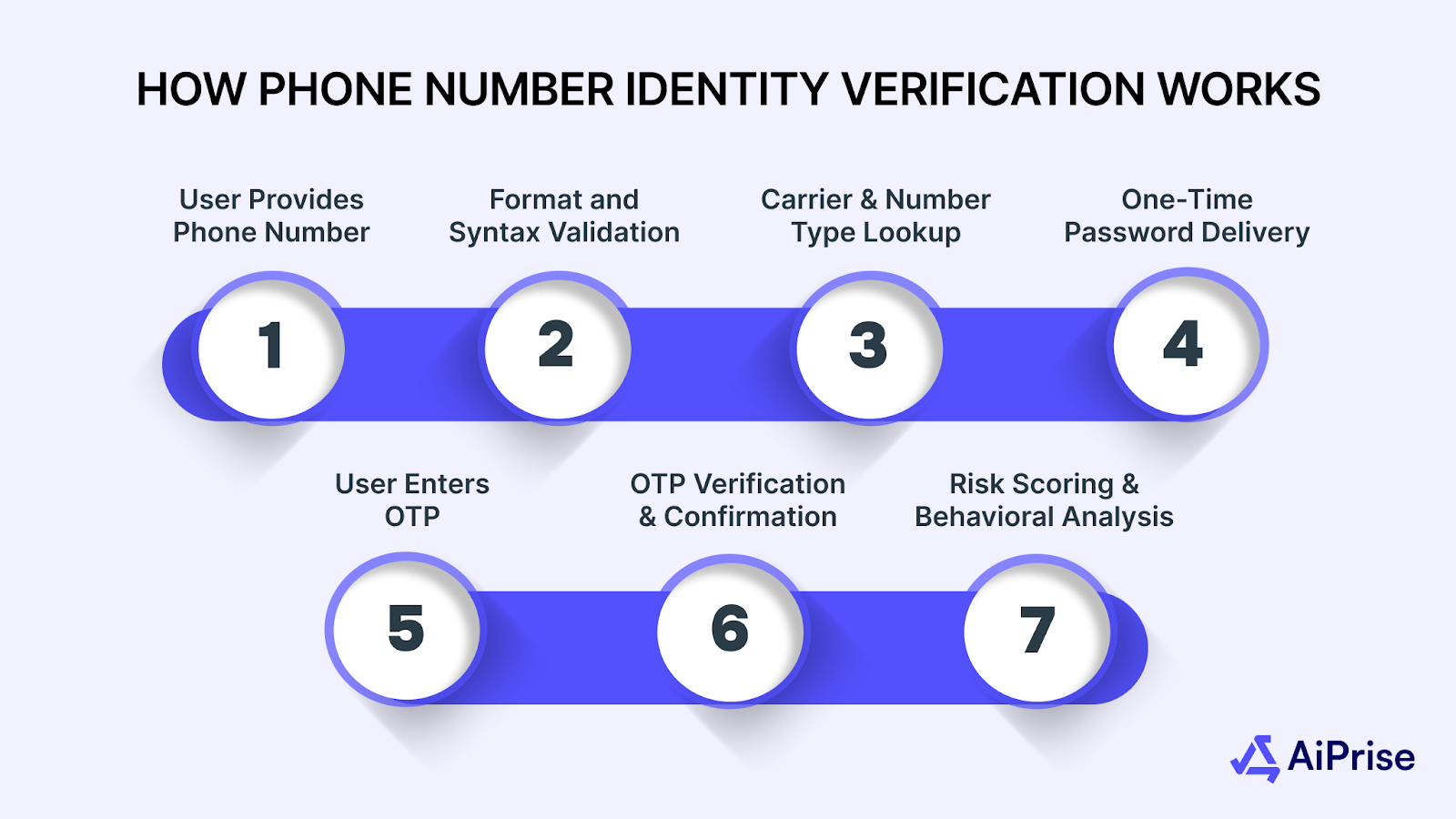
Phone number identity verification involves multiple sophisticated steps that go beyond simply checking that a phone number is valid. The goal is to confirm both the number's authenticity and that it belongs to the correct user, significantly reducing fraud risks.
- User Provides Phone Number: During registration or a transaction, the user inputs their phone number.
- Format and Syntax Validation: The system checks if the phone number follows the correct format, country-code, and length rules to filter out obviously invalid entries.
- Carrier and Number Type Lookup: The number is cross-referenced against carrier databases to identify if it is mobile, landline, VoIP, or toll-free. This step detects high-risk numbers like VoIP or disposable phones often used in fraud.
- One-Time Password (OTP) Delivery: A unique OTP is sent to the provided number via SMS or voice call, ensuring that the user currently controls the phone.
- User Enters OTP: The user inputs the OTP into the system within a limited time window.
- OTP Verification and Confirmation: The system verifies that the OTP matches and is timely. Upon success, the number is marked as verified for that user.
- Risk Scoring and Behavioral Analysis: More advanced systems assign risk scores based on factors like recent SIM porting, inconsistencies between original and current carriers, roaming status, and historical data on number usage patterns.
Also Read: Common Red Flags In Fraud Detection
While phone number identity verification offers many benefits, businesses often face challenges during implementation that can impact effectiveness and user experience.
Common Challenges and How to Overcome Them
Despite its advantages, phone number identity verification is not without hurdles. Understanding these common challenges and adopting best practices can ensure robust security without compromising customer satisfaction.
Here are some of the key challenges and solutions:
SMS OTP Vulnerabilities:
- SMS-based OTPs can be intercepted via SIM swapping or SS7 attacks, risking fraud.
- Implement multi-factor authentication combining OTP with biometric or behavioral verification layers. Use SIM swap detection services to flag suspicious number changes.
User Friction and Drop-Off:
- Lengthy or confusing verification processes can frustrate users, leading to dropouts.
- Simplify the verification flow with clear instructions and optimize for mobile devices. Use silent or one-click verification methods when possible to reduce friction.
Number Portability and International Variations:
- Ported numbers or international formats can cause false negatives during verification.
- Use advanced verification tools capable of handling global numbering plans and maintaining updated ported number databases.
False Positives and Data Accuracy Issues:
- Inaccurate phone data or outdated databases can lead to legitimate users being flagged incorrectly.
- Regularly update verification databases and combine phone verification with user behavior analytics for more accurate risk assessments.
Integration and Scalability Challenges:
- Complex APIs or insufficient infrastructure can hinder smooth verification deployment.
- Choose flexible, well-documented APIs with scalability options and robust vendor support to ensure seamless integration.
Also Read: How to Avoid and Detect KYC Fraud
With a clear understanding of challenges and solutions, let’s now explore how phone number verification delivers tailored benefits across diverse industries.
Phone Number Verification Across Industries
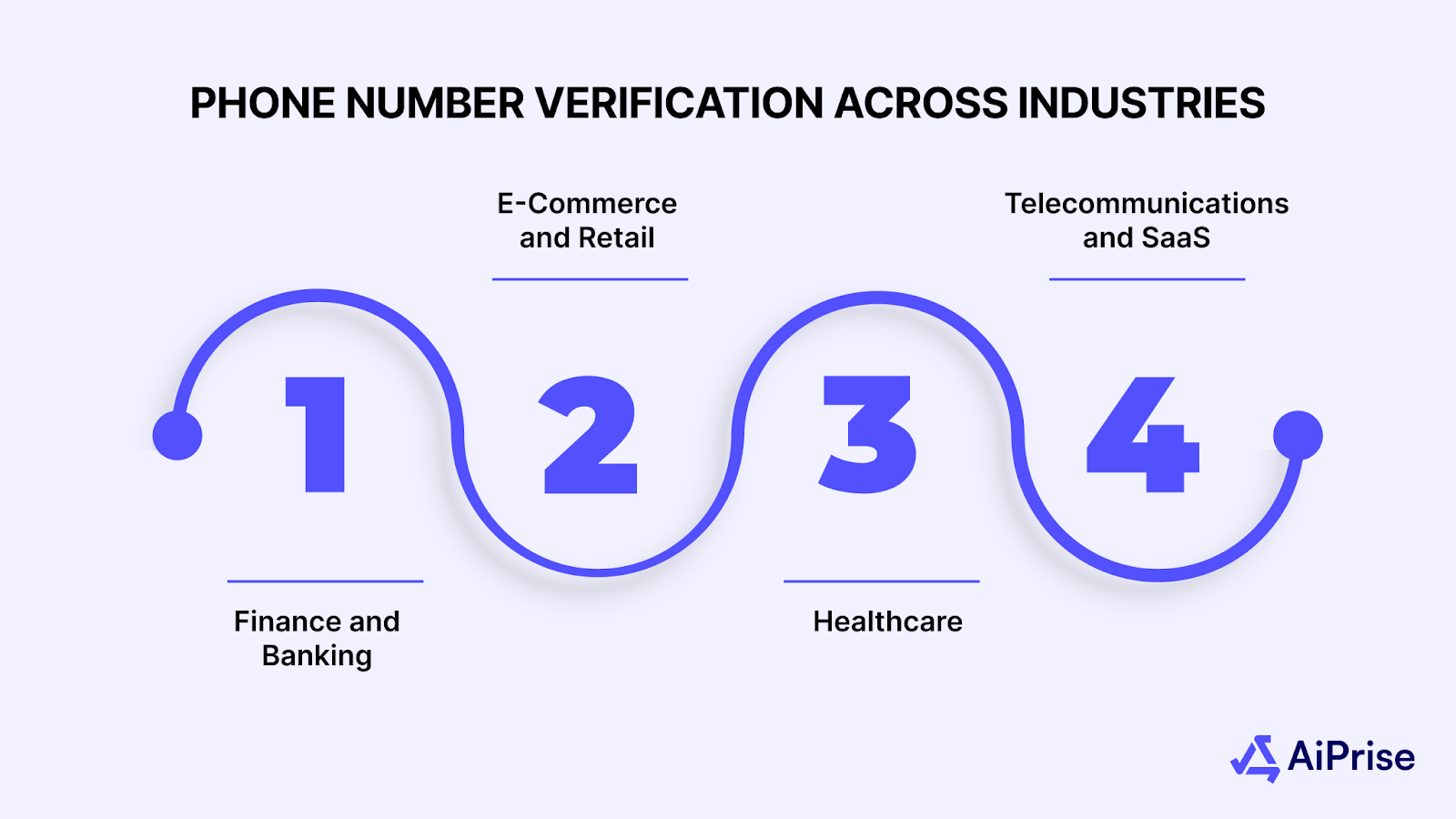
Phone number verification adapts to the unique needs and risks of different sectors, providing targeted security and efficiency gains. Here’s how key industries use it:
Finance and Banking
- Fraud Prevention: Stops account takeovers, unauthorized transactions, and synthetic identity fraud.
- Regulatory Compliance: Supports KYC and AML requirements by verifying customer identity during onboarding and transactions.
E-Commerce and Retail
- Order Authenticity: Ensures legitimate customer orders, reducing chargebacks and account abuse.
- Customer Engagement: Verifies contact info for accurate delivery updates and marketing communications.
Healthcare
- Patient Data Security: Verifies patient identity for telehealth services and appointment confirmations.
- Compliance: Helps meet HIPAA and other health privacy laws by securing communications.
Telecommunications and SaaS
- User Authentication: Enhances multi-factor authentication to protect user accounts.
- Fraud Mitigation: Detects and blocks fraudulent SIM swaps and fake accounts.
With a clear understanding of how phone number verification supports various industries, the next step is selecting the solution that best fits your business needs.
Choosing the Right Phone Number Verification Solution
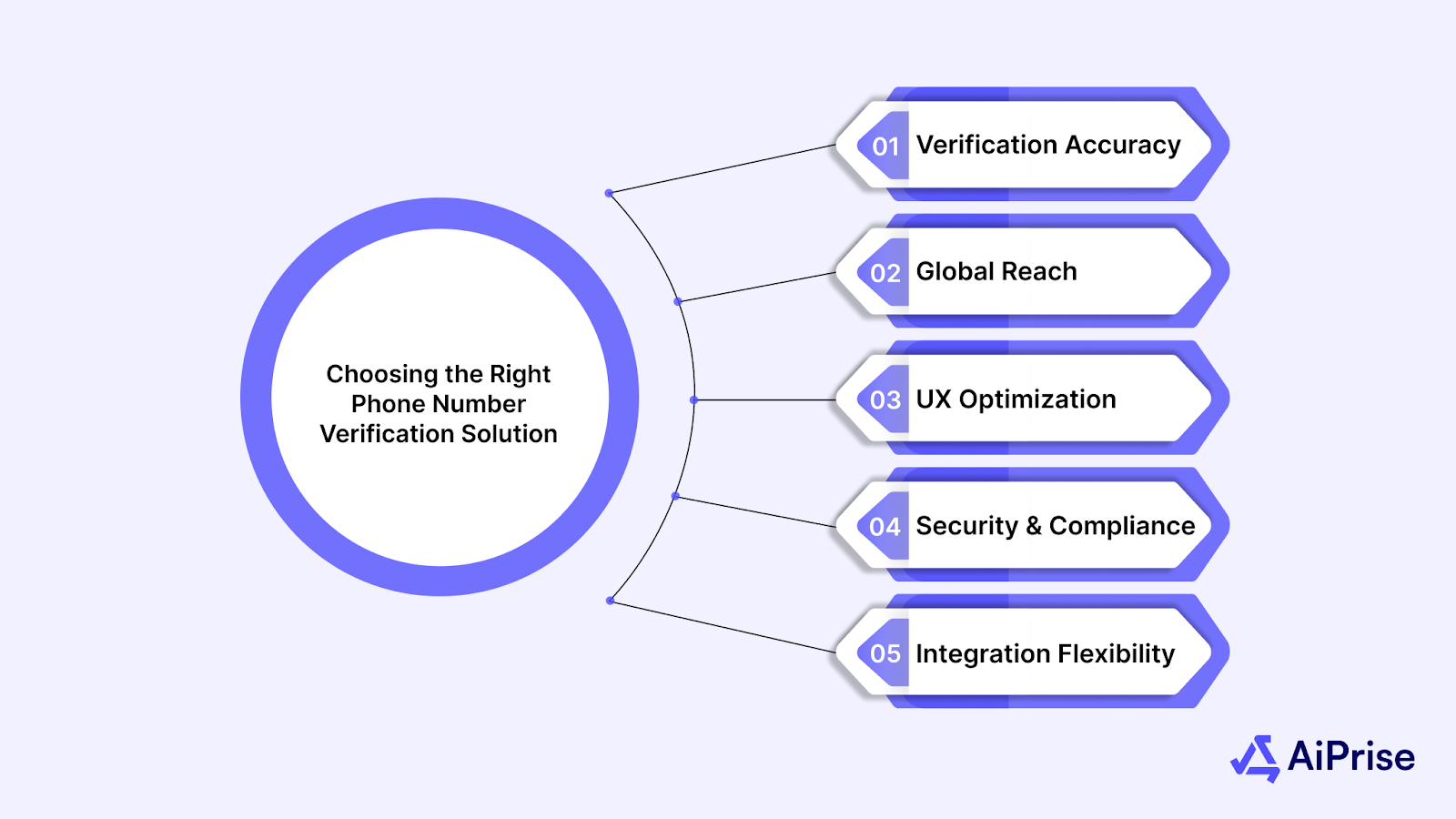
Selecting an effective phone number verification solution requires careful consideration of your business goals, technical needs, and the evolving threat landscape.
Here are crucial factors that differentiate solutions and ensure you get the right fit:
Verification Accuracy and Multi-Layered Security
Ensure the provider offers layered checks, such as:
- Format validation (international E.164 standard compliance)
- Carrier lookup to verify the phone’s network operator
- Line type detection to identify mobile, landline, VoIP, or toll-free numbers
- OTP verification with retry logic and adaptive routing for reliability
- Risk scoring integrating AI/ML models to detect SIM swaps, ported numbers, and fraudulent usage patterns.
- Solutions should support fallback methods (e.g., voice call OTP if SMS fails) and integrate secondary methods like biometric verification to mitigate SMS vulnerabilities.
Global Reach and Number Coverage
The provider must maintain continuous updates on global carrier information, number portability, and regional regulations to handle:
- Ported numbers accurately (crucial as porting is common and a fraud risk scoring)
- Validations across countries with proper handling of country code and formatting
- Coverage of emerging markets with complex telecom environments.
- Mobile numbers for SMS OTP, landlines for voice OTP, and conditional handling for virtual/VoIP numbers to balance security with user experience.
Speed and User Experience Optimization
- Low Latency API: Fast response times (sub-second where possible) to avoid customer frustration during sign-up or transaction flows.
- Silent and One-Click Verification: Advanced providers offer network-based verification without user input, reducing friction and boost conversion.
- Clear Retry & Error Handling: Built-in retry logic for OTP delivery, intelligent error messages, and rate limiting to prevent abuse enhance user satisfaction.
Security and Compliance
- Regulatory Compliance: Ensure the solution complies with GDPR, CCPA, PCI-DSS, HIPAA (as applicable), with clear data handling, encryption, and privacy policy transparency.
- Fraud and Abuse Prevention: Features like IP-to-location matching, rate-limiting OTP requests, and anomaly detection to thwart automated attacks.
- Data Encryption & Secure Transmission: All verification data must be transmitted over secure HTTPS and stored with encryption, both at rest and in transit.
Integration, Flexibility, and Scalability
- Strong API with Clear Documentation: RESTful APIs with detailed docs, SDKs in multiple languages, webhook support, and sandbox environments for easy development and testing.
- Scalable Architecture: The solution should dynamically scale to large volumes (e.g., millions of verifications monthly) without performance degradation or increased latency.
- Customizable Workflows: Ability to tailor verification steps, message templates, and risk thresholds to fit specific business rules or compliance needs.
After understanding what to look for in a phone number verification solution, here’s why AiPrise stands out as the top choice for businesses aiming for security, accuracy, and scalability.
Why AiPrise is the Best Choice for Phone Number Identity Verification?
AiPrise is a comprehensive, all-in-one identity verification and compliance platform designed to empower businesses to securely onboard and verify users worldwide.
Here are some key highlights about AiPrise:
- Verifies identities of over 5 billion individuals and 500 million businesses globally.
- Accesses and integrates data from 100+ global sources across 200+ countries.
- Automates identity document verification for 12,000+ ID types in multiple languages.
- Reduces manual review time by up to 80% through AI-driven automation.
- Accelerates onboarding time from weeks to under 10 minutes for many clients.
- Cuts operational costs by up to 75% through streamlined workflows and fraud reduction.
In essence, AiPrise is not merely an identity verification tool but a complete risk mitigation and compliance platform that empowers businesses to onboard confidently, prevent fraud proactively, and maintain regulatory integrity globally.
Don’t wait to protect your growth. Book A Demo now and take the first step toward smarter, faster, and more reliable identity verification.
Summing Up,
Phone number identity verification is essential for modern businesses to secure customer accounts, prevent fraud, and comply with global regulations, all while providing a smoother onboarding experience.
AiPrise stands out as a superior solution by combining advanced AI-powered risk scoring, extensive global coverage, multi-layer verification options, and developer-friendly integration tools.
Partner with AiPrise to safeguard your business, streamline compliance, and enhance customer trust from day one.
FAQs
1. What distinguishes phone number identity verification from simple phone number validation?
Phone number identity verification confirms both the number’s validity and user ownership, while validation only checks if the number is correctly formatted or active.
2. How does phone number identity verification reduce fraud?
It prevents fake account creation and unauthorized access by confirming the user controls the phone number and applying risk scoring to detect suspicious activity.
3. Can phone number identity verification improve customer onboarding?
Yes, it speeds up onboarding by providing fast, reliable verification that balances security with user convenience, reducing drop-offs and false declines.
4. What are the common methods used in phone number identity verification?
Common methods include OTP (one-time password) verification, carrier lookups, database cross-checks, and behavioral analysis of phone usage patterns.
5. Are phone number verification solutions effective for international users?
When backed by updated telecom databases and global coverage, phone number verification reliably handles international, ported, and virtual numbers for accurate verification worldwide.
You might want to read these...

AiPrise’s data coverage and AI agents were the deciding factors for us. They’ve made our onboarding 80% faster. It is also a very intuitive platform.







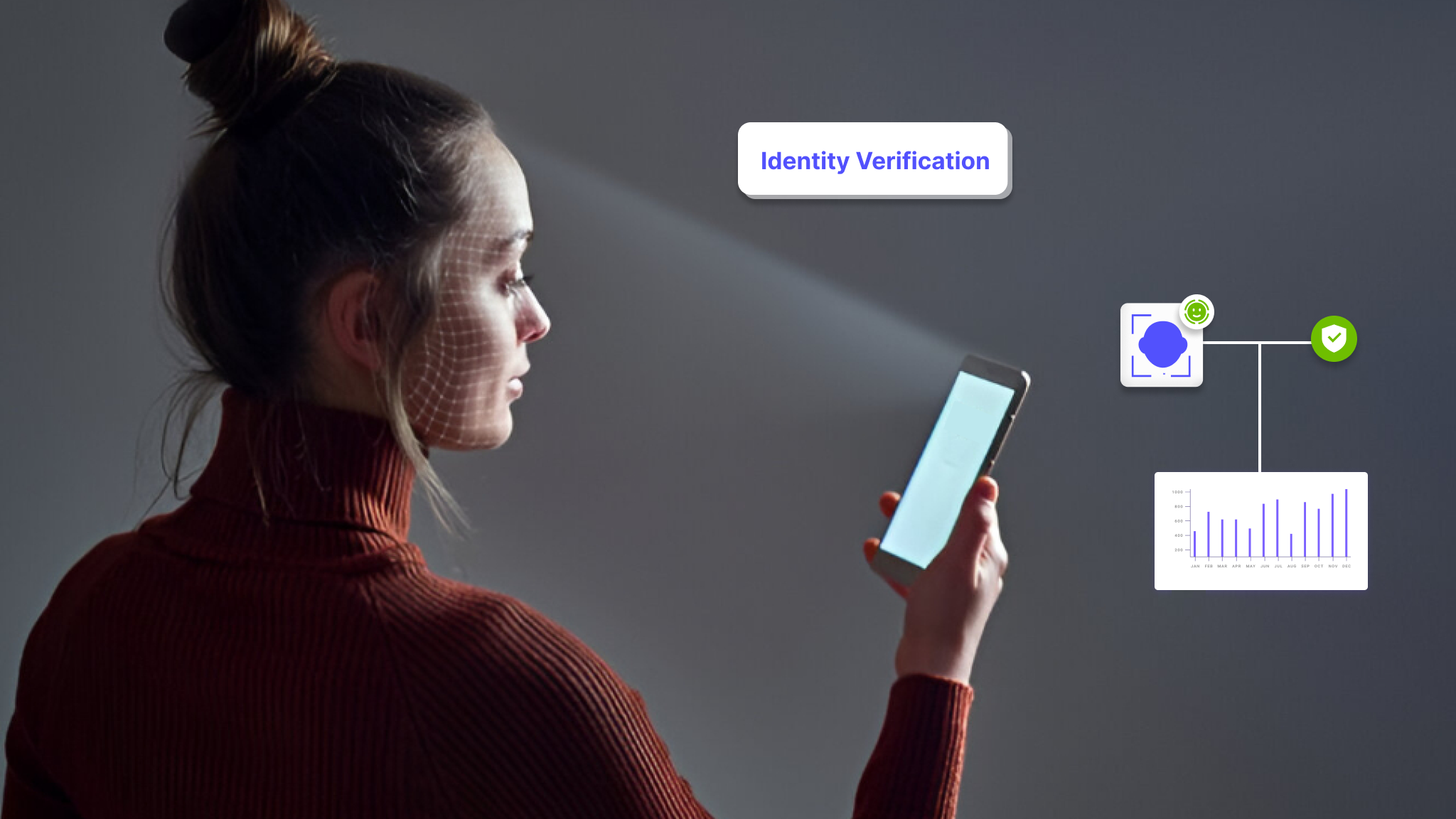




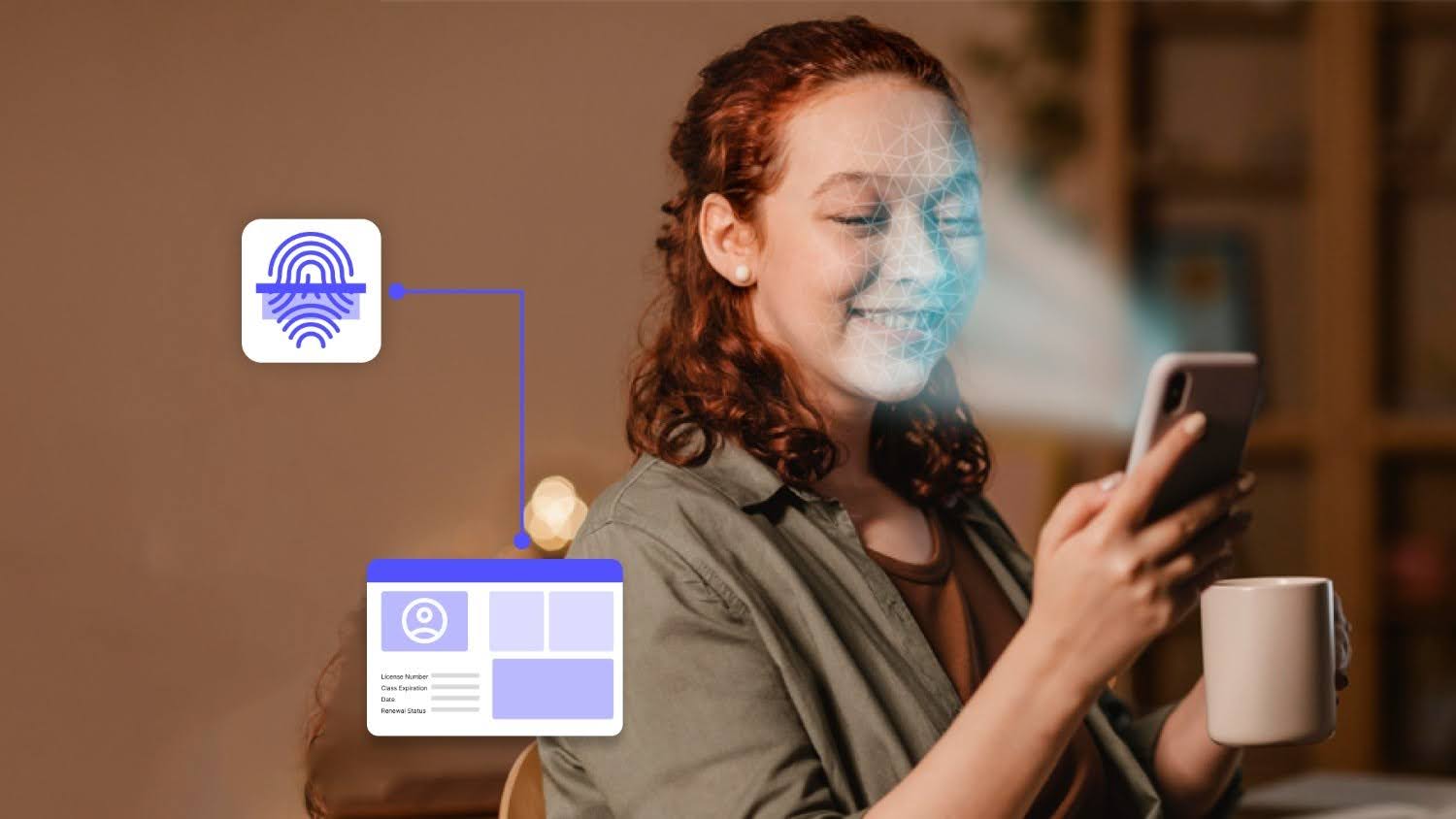
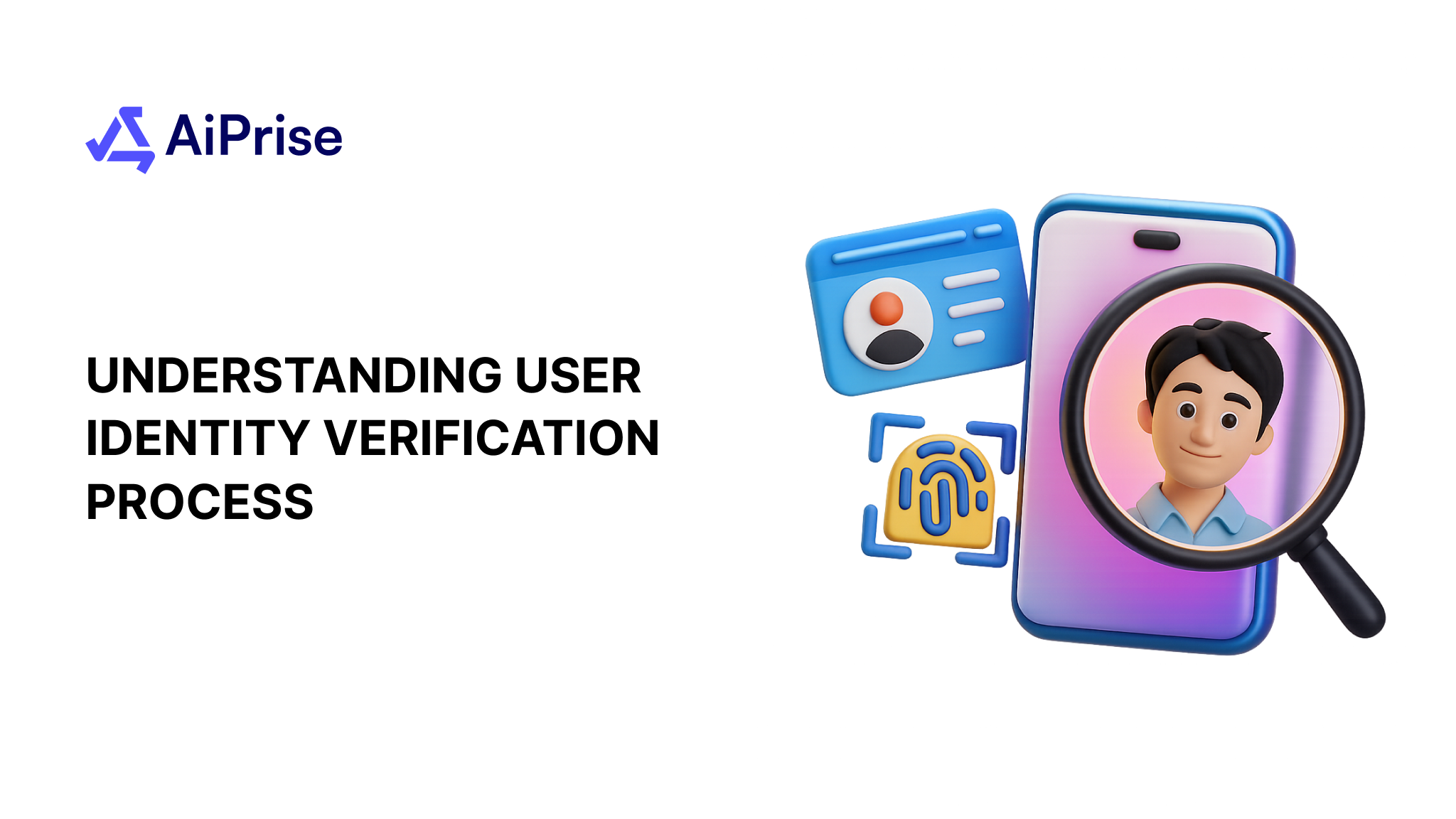
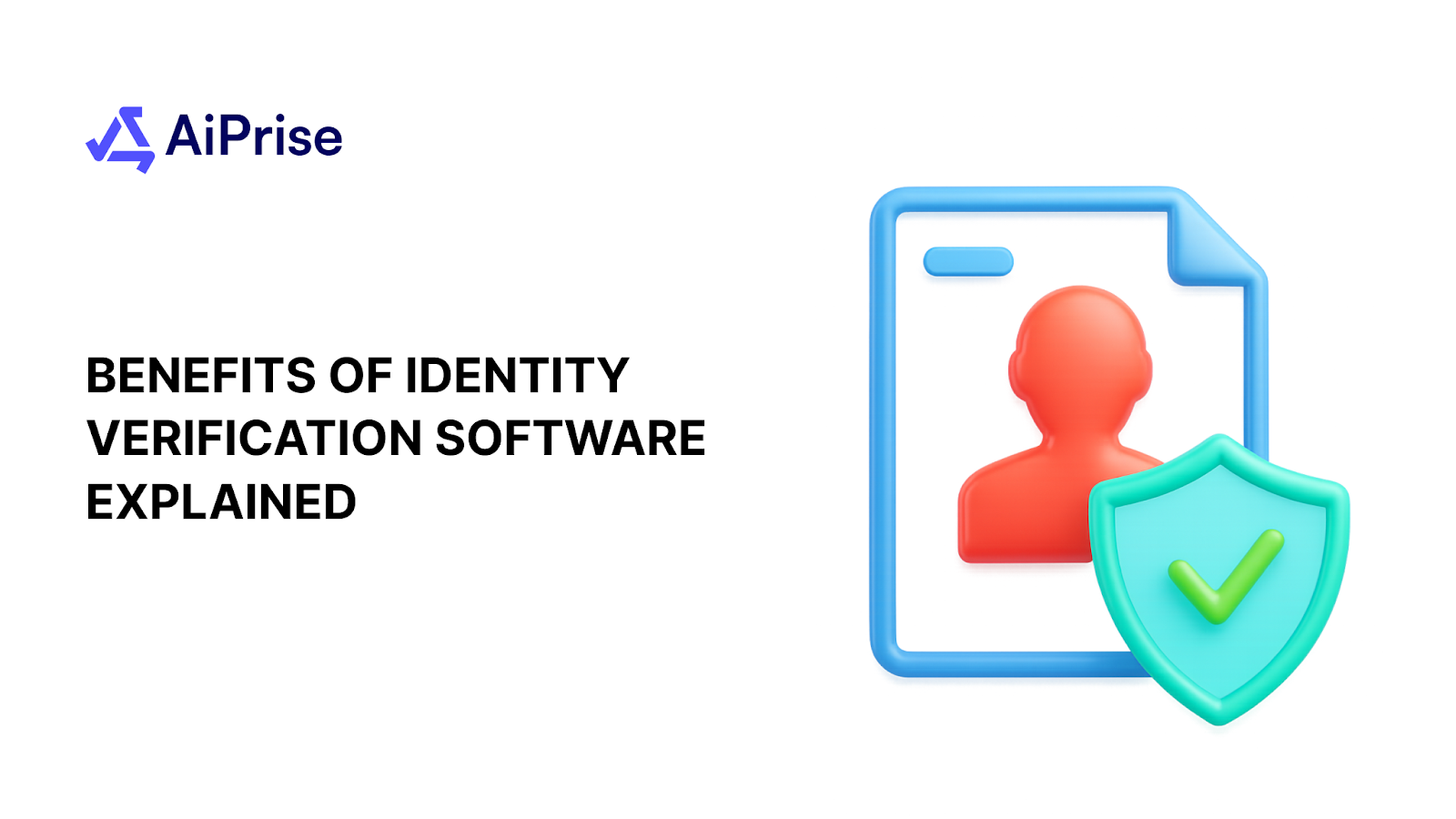
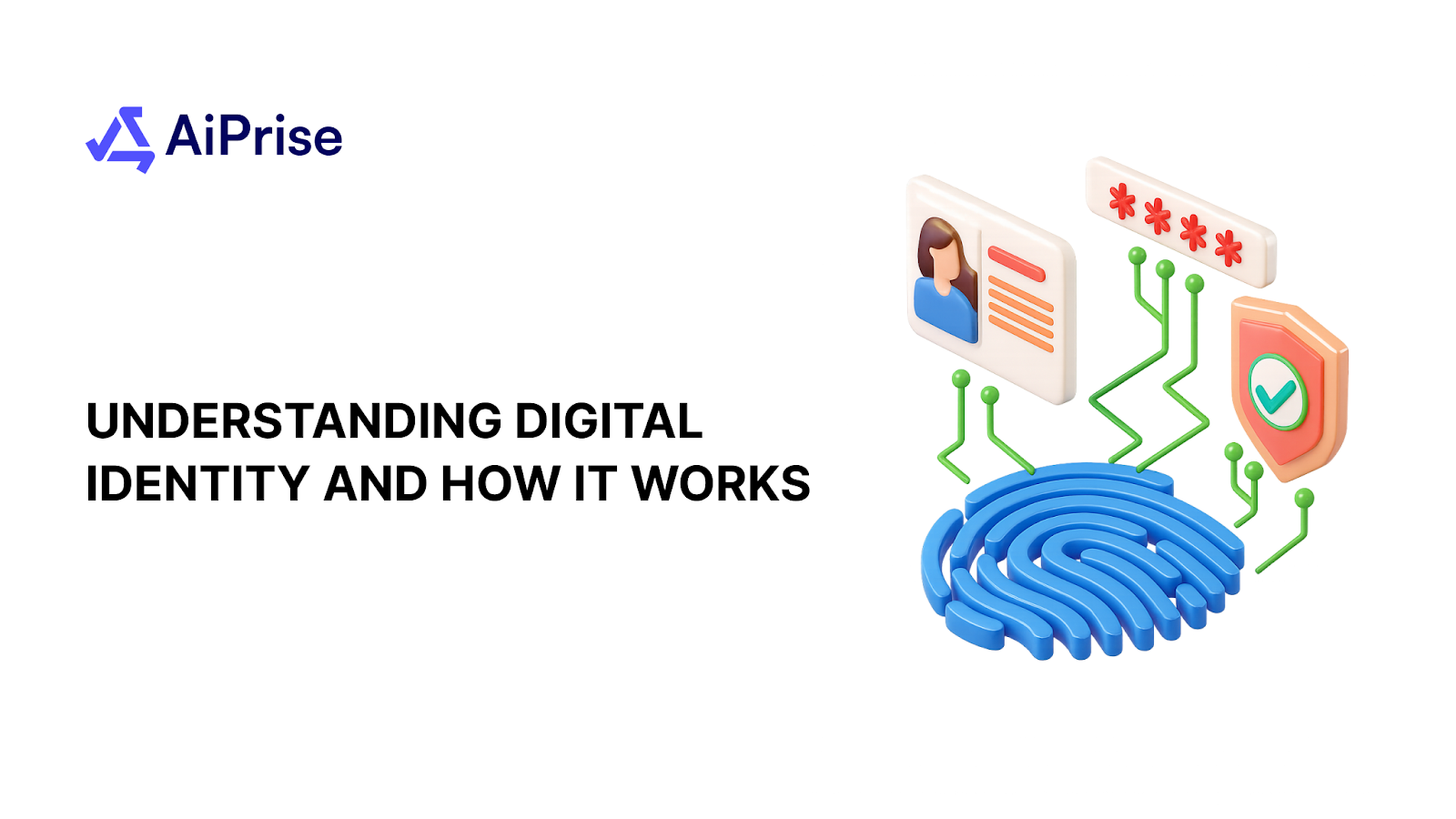

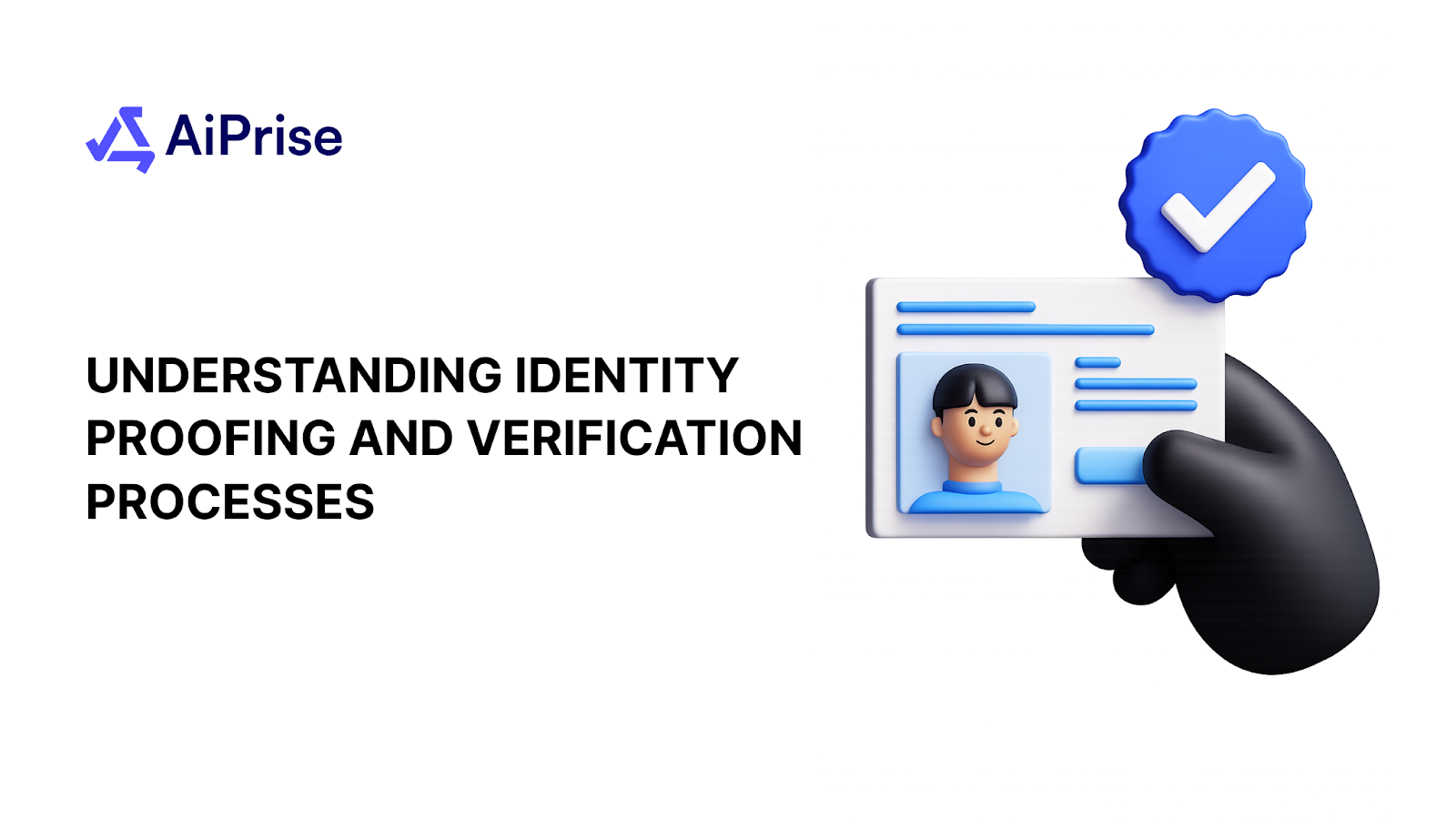
.png)


